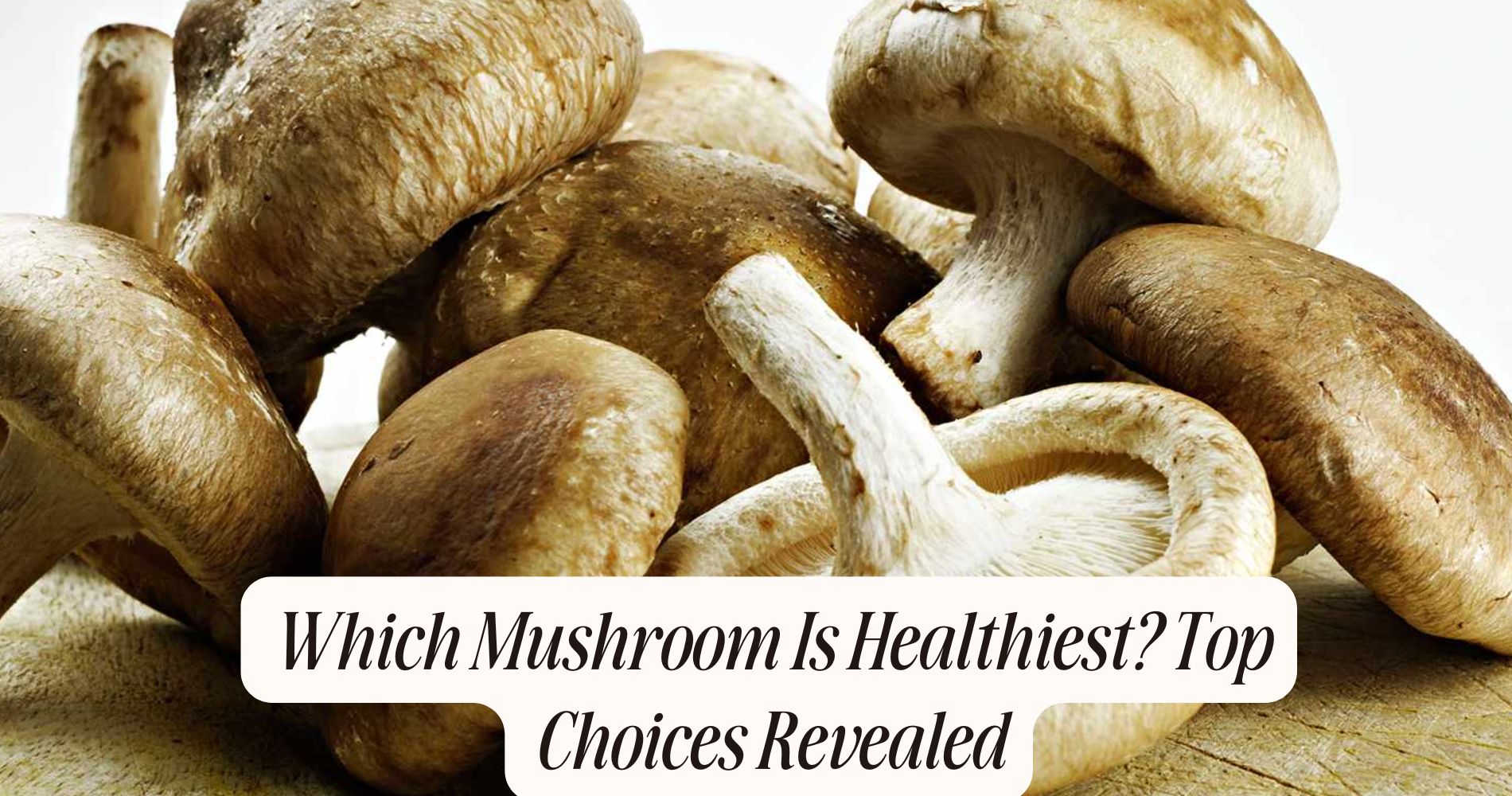The benefits of eating mushroom are hard to ignore. These nutrient-packed fungi boost immune function with their polysaccharides, helping your body fight illnesses. They also support heart health by improving cholesterol levels and lowering blood pressure. For those watching their weight, mushrooms are a low-calorie, filling option that simplifies meal prep. Additionally, they enhance nutrient absorption, ensuring your body maximizes the goodness from your meals. Certain mushrooms even elevate mood by increasing serotonin levels. With so many advantages, mushrooms are a must-have in your diet—and there’s even more to explore about their amazing benefits!
Boosts Immune Function
When it comes to boosting your immune function, mushrooms are a powerhouse. You might be surprised to learn that various mushroom varieties, like shiitake, reishi, and maitake, offer unique benefits that can enhance your immune response.
These fungi contain polysaccharides, particularly beta-glucans, which can stimulate the activity of immune cells, helping your body fend off infections more effectively.
Incorporating different mushroom varieties into your diet can help you tap into their immune-boosting properties. For instance, shiitake mushrooms not only add rich flavor to your meals but also support the production of white blood cells, essential for fighting off pathogens.
Similarly, reishi mushrooms have been revered in traditional medicine for their ability to modulate immune activity, making them a fantastic addition to your wellness routine.
It's easy to add mushrooms to your diet, whether you toss them in stir-fries, blend them into soups, or enjoy them grilled.
Mushrooms can be a fantastic ally for your heart health. Packed with nutrients and low in calories, they can help you maintain a healthy heart. One of the key benefits of mushrooms is their ability to improve cholesterol levels. They contain compounds that can inhibit the absorption of cholesterol in your body, potentially lowering your LDL (bad) cholesterol while promoting HDL (good) cholesterol.
Additionally, mushrooms are rich in potassium, a mineral that plays a vital role in regulating blood pressure. By incorporating mushrooms into your diet, you can help keep your blood pressure within a healthy range.
The antioxidants found in mushrooms also contribute to heart health by reducing inflammation and oxidative stress, both of which can lead to cardiovascular issues if left unchecked.
Moreover, the fiber content in mushrooms supports overall heart health by helping to regulate blood sugar levels and improving digestion. By making mushrooms a regular part of your meals, you're not only enjoying their delicious flavors but also taking a proactive step toward promoting a healthier heart.
Supports Weight Management
Incorporating mushrooms into your diet not only benefits your heart but also supports effective weight management. These versatile mushroom varieties, like portobello, shiitake, and white button, are low in calories and can help you feel satisfied without adding excessive calories to your meals.
With their rich umami flavor, they can replace higher-calorie ingredients in your favorite dishes, making it easier to stick to your weight management goals.
Mushrooms are mostly made up of water and fiber, which means they're filling but won't weigh you down with extra calories. By adding them to salads, stir-fries, or even soups, you can bulk up your meals without greatly increasing calorie content.
Additionally, mushrooms contain compounds that may help regulate appetite and improve metabolism, further aiding your weight management efforts.
Whether you're sautéing them, grilling them, or tossing them in a salad, mushrooms can be a delicious and nutritious part of your weight management strategy.
Enhances Nutrient Absorption
One of the remarkable benefits of mushrooms lies in their ability to enhance nutrient absorption in your body. When you consume mushrooms, you're not just adding flavor to your meals; you're increasing the bioavailability of essential nutrients.
Mushrooms contain compounds that promote nutrient synergy, which means they help your body better utilize the vitamins and minerals from the foods you eat.
For example, the presence of certain polysaccharides in mushrooms can improve the absorption of nutrients such as iron and zinc. This is particularly important since these minerals are vital for various bodily functions, including immune support and energy production.
Additionally, mushrooms are a good source of vitamin D, which plays a key role in calcium absorption, further enhancing your body's ability to utilize nutrients effectively.
Improves Mood and Mental Health
How can something as simple as mushrooms have a positive impact on your mood and mental health? The answer lies in their rich nutrient profile. Certain mushroom varieties, like shiitake and reishi, are known to contain compounds that may help boost your serotonin levels. Serotonin is a key neurotransmitter that plays a significant role in regulating mood, and higher levels can lead to a better sense of well-being.
Incorporating mushrooms into your diet can provide essential vitamins and minerals that support brain health. For instance, they're packed with B vitamins, which are vital for energy production and mental clarity.
The unique polysaccharides found in mushrooms can also promote the growth of beneficial gut bacteria, which is linked to improved mood and mental health.
You mightn't realize it, but a simple addition of mushrooms to your meals can be a tasty way to enhance your mental wellness. Whether you sauté them, add them to soups, or toss them in salads, you're not just enjoying their flavor; you're giving your mood a little boost.
Frequently Asked Questions
Are There Any Specific Mushroom Varieties That Are Best for Health Benefits?
When considering health benefits, you might explore medicinal mushrooms like reishi, lion's mane, and cordyceps. Each mushroom variety offers unique properties that can enhance your well-being and boost your immune system effectively.
Can Mushrooms Be Harmful if Consumed in Large Quantities?
Yes, consuming mushrooms in large quantities can pose health risks. Some varieties contain mushroom toxicity that may lead to digestive issues or other adverse effects. It's essential to know what you're eating and enjoy them in moderation.
How Should Mushrooms Be Prepared for Maximum Health Benefits?
To maximize health benefits, you should sauté mushrooms lightly or add them to soups. Avoid boiling them too long. Consider mushroom supplements as an alternative for concentrated nutrients if you can't incorporate fresh ones regularly.
Are There Any Allergies Associated With Eating Mushrooms?
Yes, some people have mushroom allergies. If you experience allergy symptoms like itching, swelling, or difficulty breathing after eating mushrooms, it's essential to seek medical advice and avoid consuming them in the future.
Do Cooking Methods Affect the Nutritional Value of Mushrooms?
Yes, cooking methods impact mushrooms' nutritional value. You'll find that certain cooking techniques, like steaming or sautéing, enhance nutrient retention, while boiling may lead to nutrient loss. Choose your methods wisely for maximum benefits.
Conclusion
Incorporating mushrooms into your diet is a simple yet powerful way to boost your health. From enhancing your immune system to supporting heart health and improving your mood, the benefits are hard to ignore. Plus, they can aid in weight management and nutrient absorption, making them a versatile addition to any meal. So, why not enjoy these delicious fungi regularly? Your body will thank you for it!








